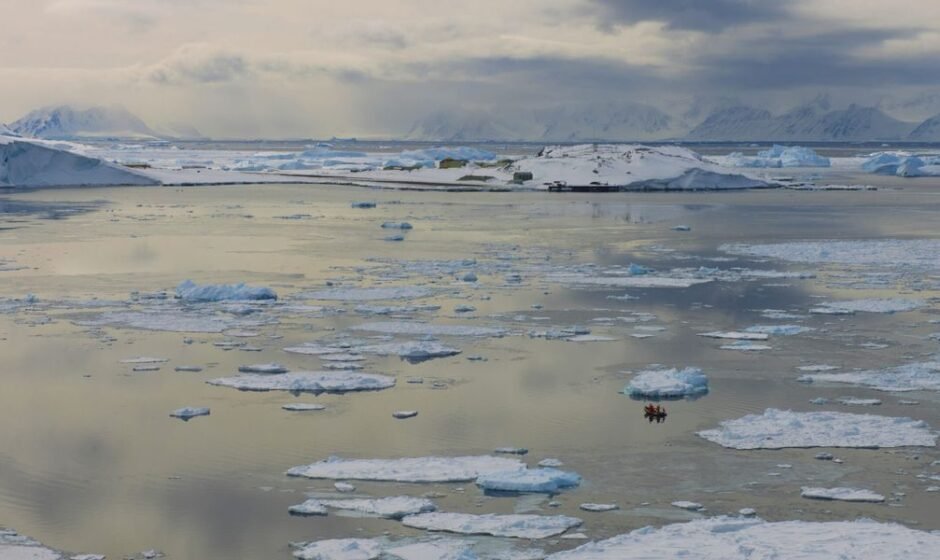European Union scientists have confirmed that last month continued a trend of historically high temperatures. In addition, a new study by UK researchers from the British Antarctic Survey (BAS) and the University of Cambridge warns of catastrophic and rapid ice loss in Antarctica due to fossil fuel-driven global heating.
The study, published in Nature Geoscience, is based on an ice core from the West Antarctic Ice Sheet that is over 2,100 feet long. Senior author and Cambridge Earth sciences professor Eric Wolff stated, “We now have direct evidence that this ice sheet suffered rapid ice loss in the past. This scenario isn’t something that exists only in our model predictions and it could happen again if parts of this ice sheet become unstable.”
The study’s co-author, Isobel Rowell, explained that the researchers wanted to understand what happened to the West Antarctic Ice Sheet at the end of the Last Ice Age. By analyzing ice cores, the team found that the ice sheet experienced a sudden and dramatic shrinkage about 8,000 years ago. This observation provides valuable data that can be incorporated into improved models.
Previous models did not indicate the speed at which the retreat occurred. However, the team’s measurements revealed that once the ice thinned, it shrunk rapidly, indicating a tipping point or runaway process. It is crucial to determine whether additional warmth could destabilize the ice and trigger further retreat.
Glaciologist Ted Scambos from the University of Colorado Boulder praised the study as “an excellent piece of detective work” and emphasized that it underscores the potential for rapid ice loss in Antarctica, which could have a severe impact on coastal cities.
The study aligns with mounting warnings from scientists about the conditions in Antarctica, including the rapid melting of the Thwaites Glacier. Researchers have called the Thwaites Glacier the “Doomsday Glacier” due to its potential catastrophic impact on sea-level rise.
In October, a study published in Nature Climate Change highlighted the West Antarctic Ice Sheet’s unavoidable increase in melting for the rest of this century. The ice sheet contains enough ice to raise the global mean sea level by over 17 feet.
The release of these studies preceded the 28th United Nations Climate Change Conference (COP28) in Dubai, which ended without explicit endorsement for a global phaseout of fossil fuels. Scientists criticized the outcome as a “tragedy for the planet.” Despite the criticism, Azerbaijan, the host of COP29 in November, plans to have an oil executive lead the conference and increase its gas production by a third over the next decade.
Global Witness recently revealed that oil and gas companies who signed a decarbonization pact at last year’s conference plan to consume around 62% of the world’s carbon budget by 2050. This revelation has prompted calls for governments to implement more ambitious climate policies and resist the influence of polluters.




